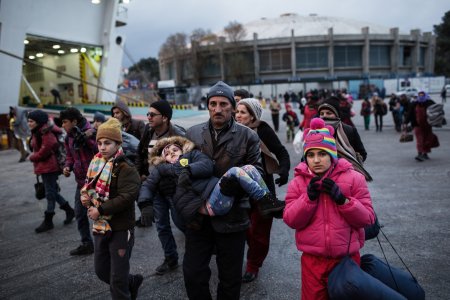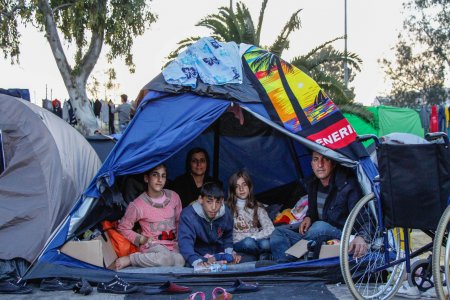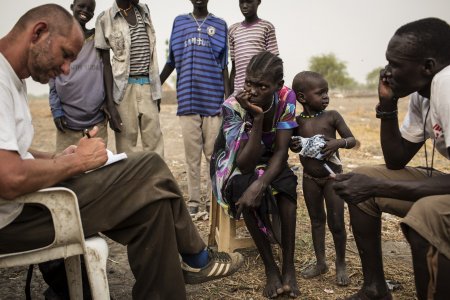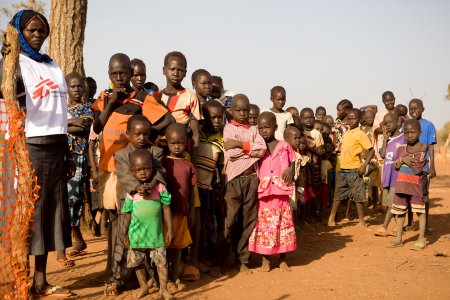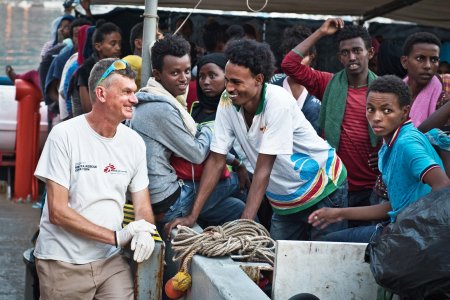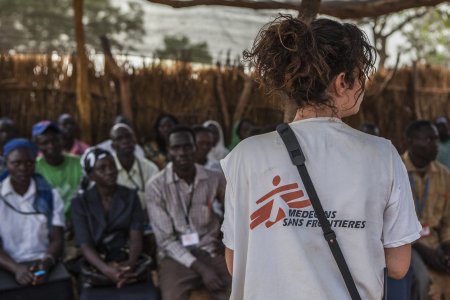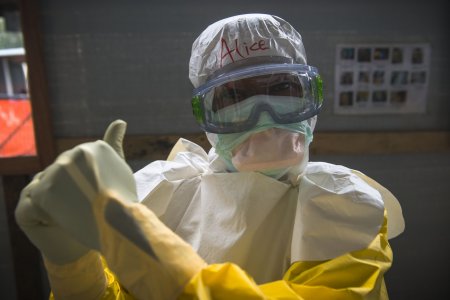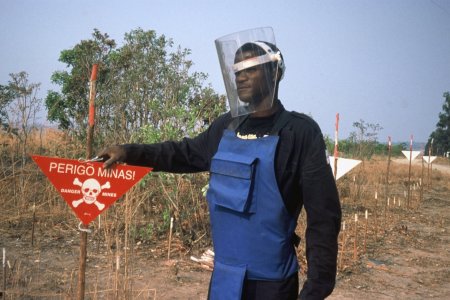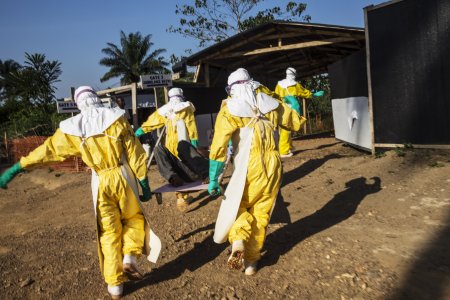OFF THE CUFF is a participative blog run by the Crash. Its purpose is to expose the diversity of experiences and opinions that exist among humanitarian aid practitioners. Online comments as well as direct contributions are more than welcome.
Views expressed on this blog are those of their authors and do not necessarily reflect the official positions of Médecins Sans Frontières
MSF suspension of EU funds: When short memory meets moral opportunism
On June 17, 2016,MSF announced that it will no longer accept funds from the European Union and Member States, as a sign of protest against the closure of European borders to migrants and asylum seekers.
In Europe, confront cynism with hospitality
World Refugee Day will have served as a near universal reminder of the cynicism of European immigration and asylum policies: dissuasion that sacrifices thousands is the sole pillar of its policy for dealing with people fleeing war, persecution or untenable living conditions.
ATHA Podcast: Michaël Neuman about "Saving Lives and Staying Alive"
In "Saving Lives and Staying Alive: Humanitarian Security in the Age of Risk Management" Michaël Neuman and his colleague Fabrice Weissman analyze some of the drivers of professionalization in the context of humanitarian security and its subsequent impact on humanitarian practices through a collection of MSF case studies.
The numbness of numbers
We welcome Abby Stoddard, Katherine Haver and Adele Harmer's response to our critical article on the production and the use of security data in the humanitarian sector and to our book in general. In a field that has been very much lacking debate, if not controversies, we're extremely glad to see a various range of readers engaging in the discussion.
Data are not dangerous: A response to recent MSF CRASH critiques
Michaël Neuman warns that misleading data are suggesting humanitarian aid work has become more dangerous, taking particular aim at the Aid Worker Security Database (AWSD) for helping perpetuate this myth.
A response to Andrew Cunningham and Chris Lockyear’s review
Michaël Neuman, co-editor of "Saving Lives and Staying Alive. Humanitarian Security in the Age of Risk Management" responds to Chris Lockyear and Andrew Cunningham's review of the book.
A response to Saving Lives and Staying Alive
Andrew Cunningham, currently an independent humanitarian researcher and analyst and Chris Lockyear, the Director of Operations for ACF USA and a former Operations Manager for MSF Operational Center Amsterdam (MSF-OCA), have sent the following response to "Saving lives and Staying alive". Let the debate live!
Is aid work really more dangerous than ever? Flawed studies won’t tell us
Since the 1990s and the rise of conflicts in West Africa, Somalia, Chechnya, the former Yugoslavia and Africa's Great Lakes region, humanitarian organisations have been warning of greater insecurity for their staff. These observations are bolstered by surveys aimed at objectively quantifying violence against humanitarian workers.
The response to the Ebola epidemic: negligence, improvisation and authoritarianism
If MSF has held a preponderant position in the response to the Ebola crisis, it owes it just as much to its intervention capacities as to its capacity for criticism. The following article by Jean-Hervé Bradol embodies perfectly the latter in pointing to the issues that appeared on the occasion of this epidemic.
The oldest war crime in the book ?
This post was published as a reaction to the attack on the MSF hospital in Kunduz, Afghanistan, that took place on October 3rd, 2015.
Transitioning to national ownership : the case of Humanitarian Mine Action
Should eventual transition from internationally managed programmes to national ownership always be a relevant and/or realistic goal?
The critical role of humanitarian critique
Bertrand Taithe (HCRI, University of Manchester), Juliano Fiori (Save the Children UK) and Michaël Neuman (MSF-Crash) discuss the important role of constructive criticism in the future of humanitarian assistance.

